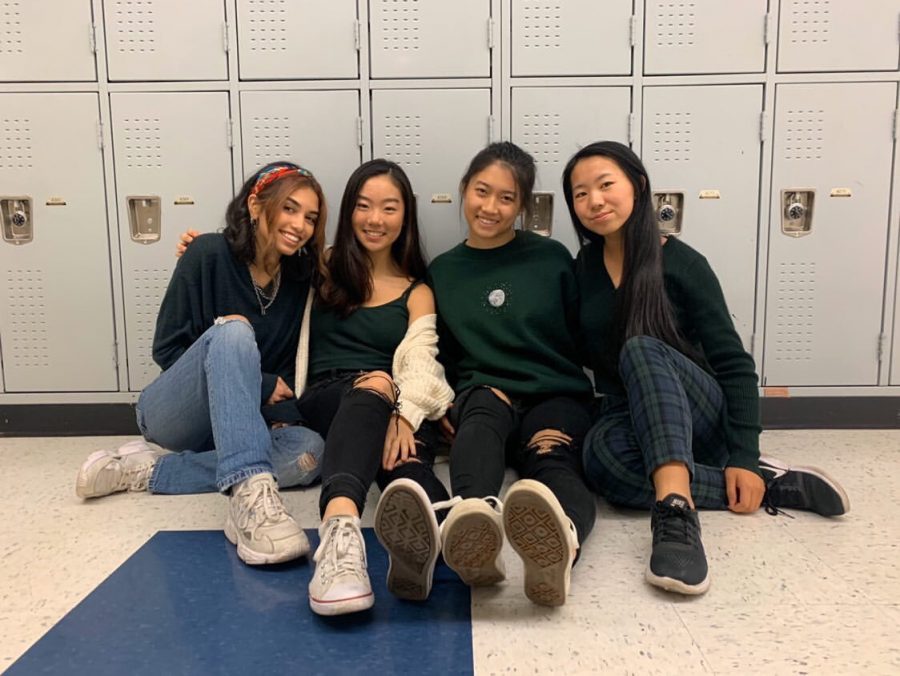Stephanie Su
“Self-doubt hindered me from spreading the sustainable mantra as a younger student.”
Stephanie Su: We started our non-profit in March of 2018…Sarah initially proposed the idea for CreateAFuture, and the rest of us joined in on the effort a few weeks later.
Sarah Yao: It started as an idea to relieve the carbon footprint that I was leaving behind, and I truly wanted to encourage others to adopt the zero-waste mantra alongside myself. I believe as young leaders we are the advocates for the Earth and for what good we want to see in the world; the foundation of CreateAFuture was the way I could create a platform where students and leaders could learn about being more conscious about what they consume, as well as to spread a greener earth philosophy from.
Su: The project was rather simple for us to start because of our prior knowledge about sustainability, and our passion for making a difference as young leaders…Finding companies to support our cause took a greater amount of persistence, but it is great seeing how, as mere high schoolers, we can plant a seed of open-mindedness about eco-friendly alternatives into the minds of adults…We want our eco-friendly products to be a model for today’s youth that leading an environmentally-conscious life is possible and necessary. Through the accumulation of small steps towards a zero-waste lifestyle, we spread awareness and instill action in all generations…First, we create a pin design, either through traditional art media or through digital graphic design. Next, this design is transferred onto a physical template from which each individual pin design is cut. Then, we use a special pin machine to mechanically press together the components, ultimately connecting all four parts of the pin. Holistically, the process ensures the quality of the hand-made pins but can be tedious for mass production.
Yao: Not only have I become even more eco-conscious about everyday choices in my life, but I’ve also become more self-disciplined about what choices I want and can make about choosing to have a mark on the world. I believe in the power of the ripple effect, and CAF is something that I want to continue into college and beyond in order to inspire and support students towards creating what significant change they want to see in the future.
Ellie Yan: Aside from developing my interpersonal skills, collaborating with a group of environmentally-conscious leaders has molded me into a more proactive and outgoing individual. Working at CAF has inevitably opened my eyes to the dire circumstances we live under and forced me to take bold steps towards increasing awareness of this issue to my peers. Climate change is undoubtedly an issue of complexity and utmost importance, an issue that can only be solved in unanimous effort. Ultimately, CAF is a method for me to inspire others towards the integrated effort of solving climate change.
Su: Being a part of CreateAFuture has allowed me to view the world through a new lens, evaluating the environmental impact of every action I take or see around me. Combined with another interest of mine, anti-consumerism, I’ve become more selective about the items I choose to bring into my life and ensure that they all have a purpose. I’ve also taken other steps to reduce my waste, such as avoiding single-use items whenever possible, and minimizing my online shopping and thus, the environmental cost of transportation. More broadly, I’ve acquired a significant amount of knowledge about the climate crisis, and am able to have meaningful discussions with others about how we can help combat it.
Yao: [I would tell my younger self] carpe diem-seize the day! Self-doubt hindered me from spreading the sustainable mantra as a younger student, as I wasn’t confident enough in my skills to create something like CAF. In high school, I realized that if I wanted to see a change in the world, I needed to be the catalyst to do so, and I’m more than thankful to have had this opportunity to do so.
Yan: …I would specifically urge my younger self to cut down on meat, especially beef, consumption. Like most children, my younger self never hesitated to invest in fast-food meals. Not only did this take a toll on personal health, but consistent and unrestricted consumption of beef only encourages the unethical patterns of cattle-rearing commonly found in the beef industry. Furthermore, meat industries produce more than 40% of greenhouse gas emissions in the world.
Su: Physical possessions will not solve internal issues. Several years before joined CAF, I had fallen into the consumerist trap fueled by media, influencers, and my insecurities. I purchased makeup I’d never use up, and an excessive amount of clothing from fast fashion stores that I thought would “fix” my appearance…Had I been aware that such a significant portion of my belongings would essentially go to waste, I would not have bought them in the first place and would have been able to reduce my environmental footprint.
